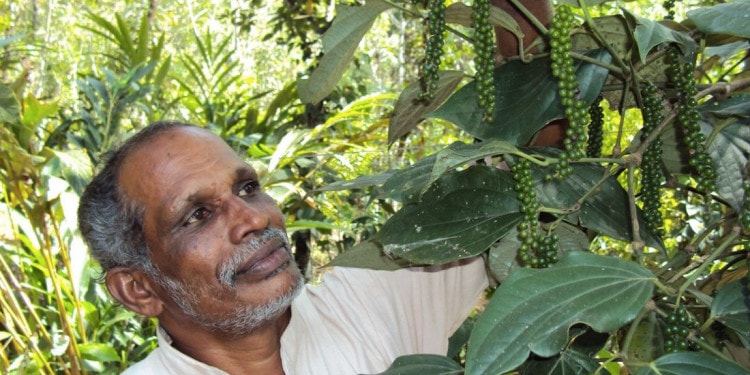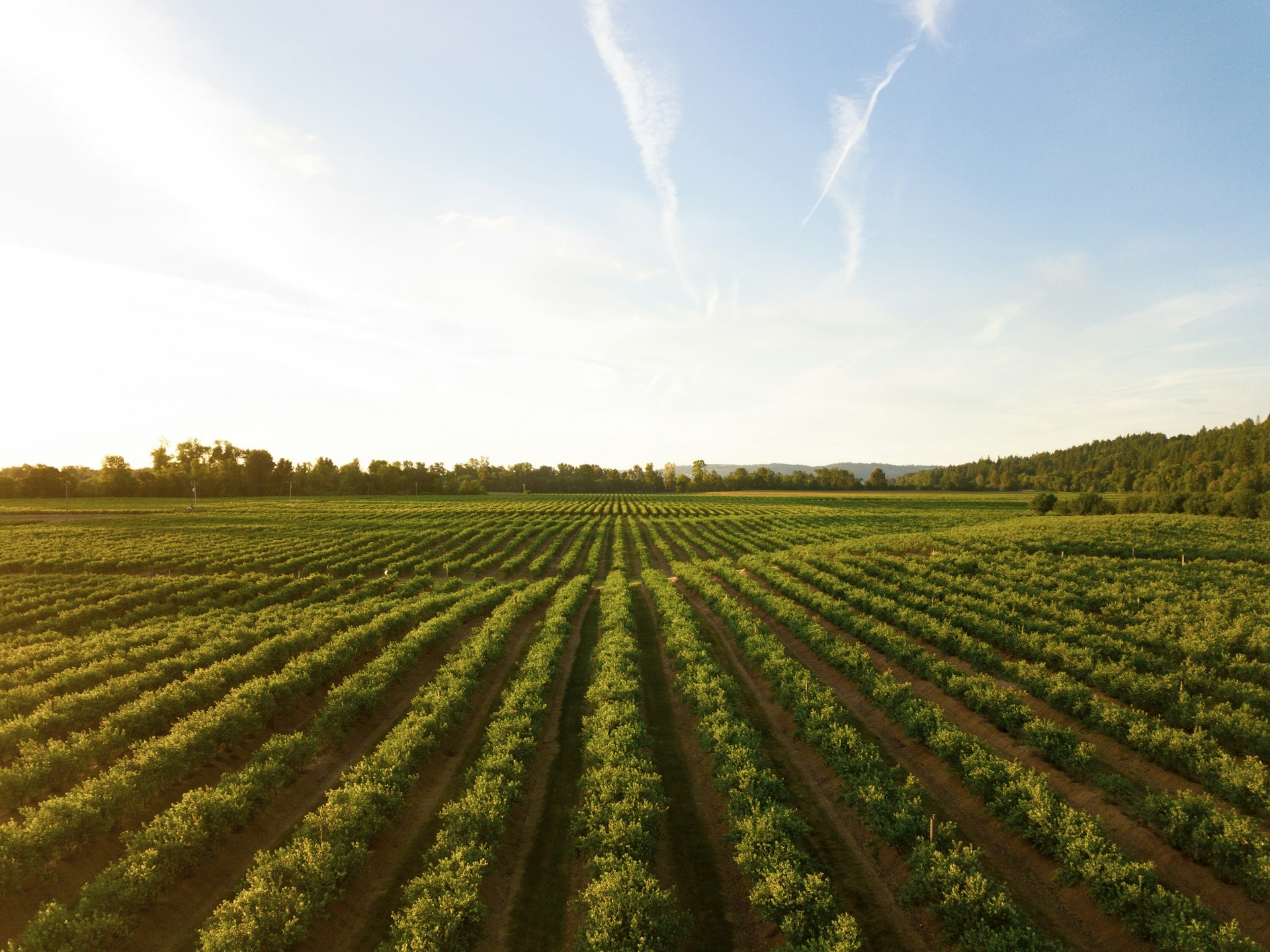A successful Story from Kerala, India – by James T.J, Sijo Jose, Sanoop , Stebin K, Dr Hubby Mathew of Peermade Development Society, Idukki , Kerala, India.
Based on local problems and needs in Kerala, India, innovative farmers and local communities have importantly evolved and developed several ingenious practices and technologies. However, innovative capacities of farmers are largely underestimated, underutilized and diffusion of many innovations are limited to certain areas.
Peermade Development Society, a renowned NGO based in Idukki, Kerala, India, has been working in the field of rural innovations for the past two decades. Documentation, development and dissemination of farmers’ innovations, with the participation of various stakeholders, are the core areas of intervention. PDS, in partnership with the support of various stakeholders [1], has documented several creations and modernizations from different parts of Kerala; majority of innovations were documented from hilly and high ranges of Kerala.
Farmers have taken it upon themselves to experiment and develop new technologies for addressing their needs which were often neglected by the government, or private sector, in high risk areas.
The documented innovations include plant varieties, cultivation practices, pest and disease management practices, farm machineries and implements. As indicated earlier, the diffusion of these innovations is limited to certain geographic areas. Though many of these rural innovations are cost effective, viable, based on local needs and could be converted into business, majority of these local innovators are struggling for commercialization and dissemination of their innovations.
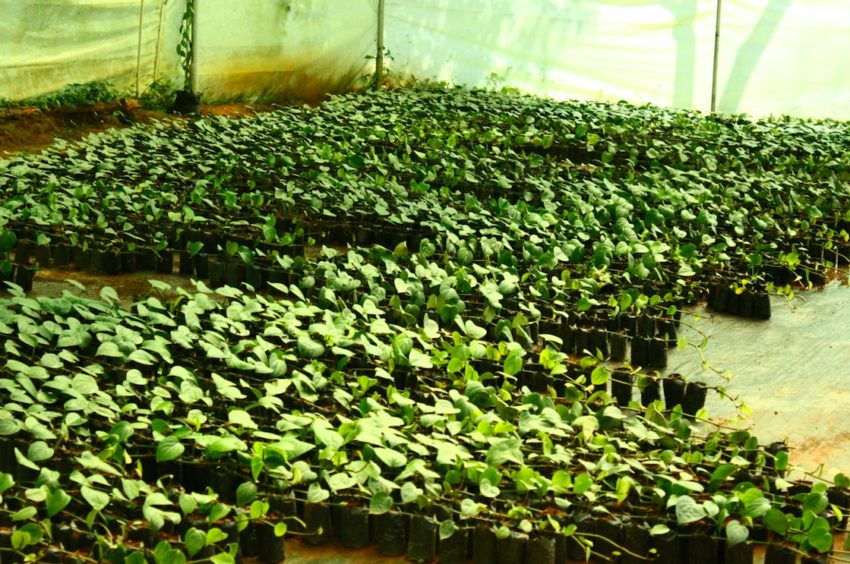
It has been observed that majority of the innovators lack required necessary business skills for commercialization of their innovations. Lack of the required capital, efficient team, professional management, production facilities, distribution and servicing facilities, lack of knowledge of market/ marketing strategies are the common constraints faced by the local innovators in the dissemination and commercialization process.
In this context, we at PDS explored the possibility of linking with local entrepreneurs for the commercialization of local innovation. Initially we approached large entrepreneurs, since many of these innovators are localized; investors and large entrepreneurs did not show much interest. So, we discussed the concept with various rural entrepreneurs and they have shown interest in the project, agreeing to pay royalty to the innovators per sold seedlings.
Based on these insights, a five year project was prepared and submitted to Department of Science & Technology, Government of India under its i-STED[2] scheme (Innovation Science Technology Entrepreneurship Development). The project was approved and launched in 2016. The core objective of the project is to commercialize the rural innovations by linking the rural entrepreneurs with proper benefit sharing mechanisms. Pepper, cardamom varieties, and farm machineries developed by farmer innovators are attempted in the project.
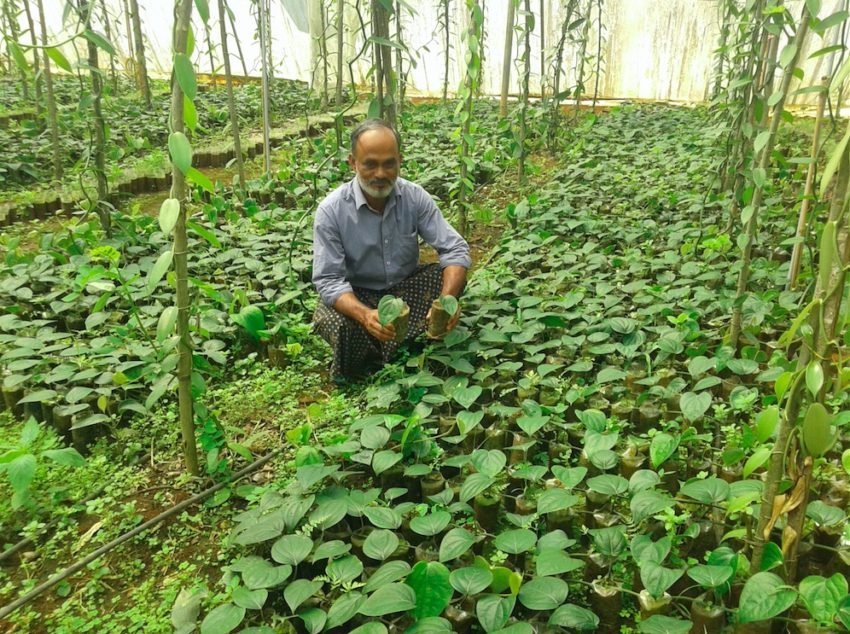
Farmer Breed Pepper Varieties
Pepper is one of the major crops cultivated in Kerala. There are several cultivators identified and propagated by the innovative farmers. Kumbukkal pepper (Farmer Breeder KT Varghese), Zion Mundi (Farmer Breeder PG Geroge), Aswathy & Suvarna (Farmer Breeder KT Balakrishnan) are some of the supreme varieties identified and propagated by the farmers. These varieties are known for their drought and disease resistance, and better productivity and adaptability in high range areas of Kerala.
These varieties cultivated by rural farmers have won national awards from the National Innovation Foundation. After receiving the awards, the media covered the rural farmers innovations, creating more demand for their varieties. However, the diffusion of these varieties is limited to their villages or districts. Though they are receiving several business enquires from different parts of Kerala and Karnataka, they were not able to supply the seedlings.
Lack of facilities for mass production of seedlings in bulk, and high cost for transportation for different parts of Kerala, were the biggest constraints faced by them in business; lack of business skills, marketing skills and lack of required capital are other constraints faced by the innovators for commercializing innovations.
Initially with the project support, we supported the innovators to develop mother nursery/ production unit for mass production of these varieties. With this support, innovators equipped their nursery with more facilities such as poly houses, irrigation and other facilities. The innovators were requested to produce more seedlings by adopting the modern scientific technique, the ‘serpentine’ method. Serpentine method is a vegetative propagation method for mass production of pepper; our team provided technical support for adopting these methods. Around 6000 seedlings were raised by each innovator in their limited nursery facilities.
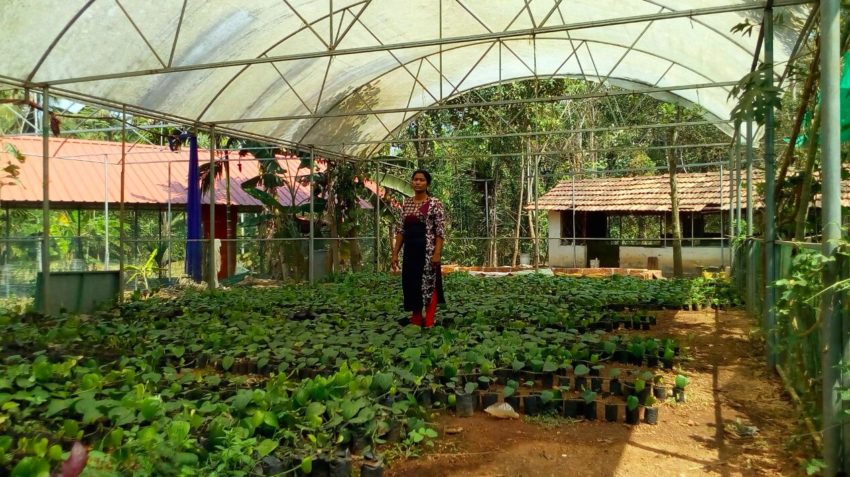
Meanwhile, our team began the search for rural entrepreneurs interested in starting business based on these farmer varieties, in remote village areas. With the help of district agricultural officers, we identified 9 entrepreneurs interested in starting small nurseries in pepper. The district agriculture officer recommended the entrepreneurs, and so PDS made the visit to the entrepreneurs and assessed their willingness, interest, available infrastructure and experience.
Based on the criteria, we have selected 9 entrepreneurs including female entrepreneurs from the Wyanad, Idukki, Palakkad, Kannur and Thrissur districts of Kerala.
All entrepenurs were trained in all aspects of nursery management and cultivation of pepper varieties. Most of these entrepreneurs are already in the business of nursery, and so have the necessary infrastructure for propagation of pepper. In addition, each entrepreneur agreed to pay a small percentage of profit /royalty to the innovators, consequently a formal agreement has been signed in this regard.
Based on the size of the nursery facilities of the entrepreneur, we have collected the plant cuttings from the innovators and supplied them to the entrepreneurs for multiplication; they were also advised to adopt serpentine method for mass production. Out of 9 entrepreneurs involved, four of them successfully multiplied the seedlings/ cuttings in their nurseries. Floods during the monsoon, and damage of seedlings caused by the fungal attack, were constraints faced by the other entrepreneurs in multiplication of seedlings in pepper.
By October–November 2018, the seedlings of the four entrepreneurs were ready for sale; on average, each nursery owner had grown approximately 25000 seedlings in their nursery. In order to promote these local brands, advertisement was made in the leading dailies and publications for public visibility.
It was reported that more than 50 % of these seedlings in the entrepreneur-nurseries were already sold by the nursery owners; 50000 Rs (fifty thousand) was earnt in this process as royalty for the innovators, and is to be shared with them accordingly. Besides this, the farmer innovator also sold the seedlings from his own nursery, fetching an increasing reasonable income.

Each rural entrepreneur is maintaining stock registers /account book, in which the seedlings available in each nursery is to be properly recorded; the register is made available to innovator and officials of i STED project, so that they can regularly check it.
Seeing the success of this innovator–entrepreneur commercialization model, more and more farming innovators are showing interest in participating in this project. The model is ideally suited to small holder innovative farmers who have resource constraints in commercialization of their innovation. Importantly, besides the diffusion of these innovations, the approach is generating employment in rural and remote village areas.
One of the lessons we learnt from our experiences is that, for diffusion of farmer innovations, we need to evolve location specific innovative business models and strategies. Linking rural entrepreneurs with, and supporting them to establish, enterprises is an extremely effective strategy for diffusion of farmers’ varieties.


